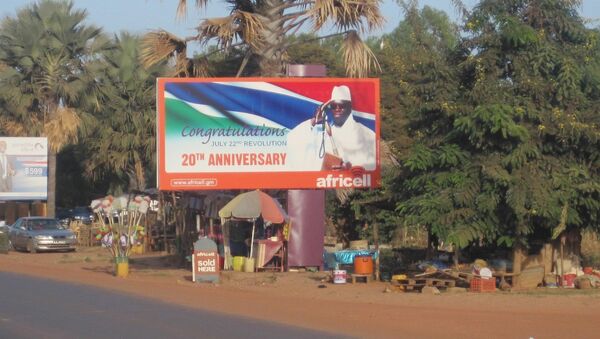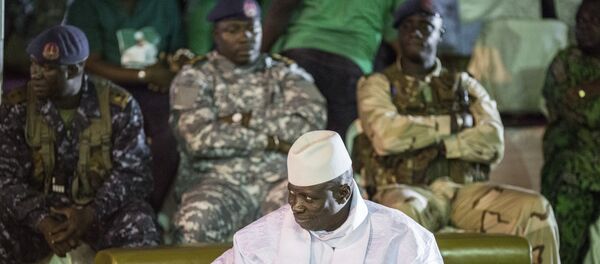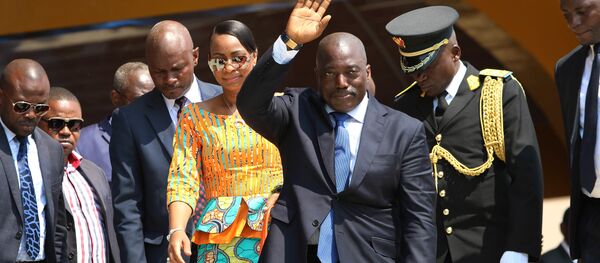They also promised to "guarantee the safety and protection of the president-elect," businessman Adama Barrow, who has said he fears for his life.
The announcement, made during the Economic Community of West African States (ECOWAS) summit in Nigeria, adds to the international pressure on President Yahya Jammeh to turn over the reins. (Jammeh sat out the summit.)
Jammeh originally said he would abide by the shocking election results, but changed his mind soon after, a flip condemned by the United Nations, the United States and the African Union.
The 11 West African leaders at the summit also created a mediation committee to help manage the transition of power. Nigerian President Muhammadu Buhari will head it with President of Ghana John Dramani Mahama, who this month became the first sitting president in Ghana to concede a defeat, as second in command.
Mahama was part of a four-person delegation of leaders who flew to the capital of the Gambia, Banjul, last week, to investigate and try to reconcile Jammeh to the result.
Head of the ECOWAS Commission Marcel de Souza commented earlier this week that a military intervention and "draconian measures" must be considered if Jammeh refuses to budge. He said sending in troops was "a possible solution," the Guardian reports.
ECOWAS does not have an army, but organized a troop deployment by member states to Guinea-Bissau after a coup there in 2012.
President of Senegal Macky Sall said force must be a last resort.
"There were certainly crimes. But if we engage in a showdown, it is clear that the consequences will be much more dramatic," he said, according to the Guardian.
"If it is necessary to dialogue and find a way out for Jammeh to be protected, why not? I am for dialogue and allowing him to leave quietly."
Jammeh shows no sign of leaving quietly or otherwise. He is citing election errors as the reason he reversed his concession, though the Gambia's Independent Electoral Commission insists Barrow was the winner, with a revised count of 227,708 votes to Jammeh's 208,487, according to AP. His party filed a court challenge against the results this week, though the country's Supreme Court does not have a quorum, and he sent troops to the election commission's office to take it over shortly before the four-person African delegation arrived.
A spokesman for the opposition coalition that Barrow represents said December 18 that Jammeh would become a "rebel leader" if he hung on to power, AFP reports.
"Any president who loses constitutional legitimacy becomes a rebel," said spokesman Halifa Sallah.
"Anybody who is a military officer or civil servant who refuses to be under another constitutional authority obviously would also become a rebel," he added.
Sallah also read a statement to the nation by Barrow, in which the president-elect said the country's constitution orders that he assume office on the day Jammeh's term expires. "He assumed office on 19 January 2012. His term expires in January 2017," the statement read, AFP reports.
"On the day his term expires, my term as the lawful president of The Gambia begins."
Unions and civil society organizations within The Gambia are calling on Jammeh to step down as scheduled, even as the military flip-flops. The bar association called his dismissal of the results "tantamount to treason," the teachers' union has accused him of endangering the lives of Gambians, and the country's press union and medical association have also called on him to leave, the Guardian reports.
Jammeh is accused of human rights abuses during his tenure, including detaining, torturing and killing opponents; as well as stifling freedom of the press and freedom of speech. He took power in a bloodless coup in 1994.





